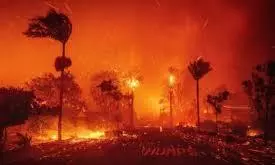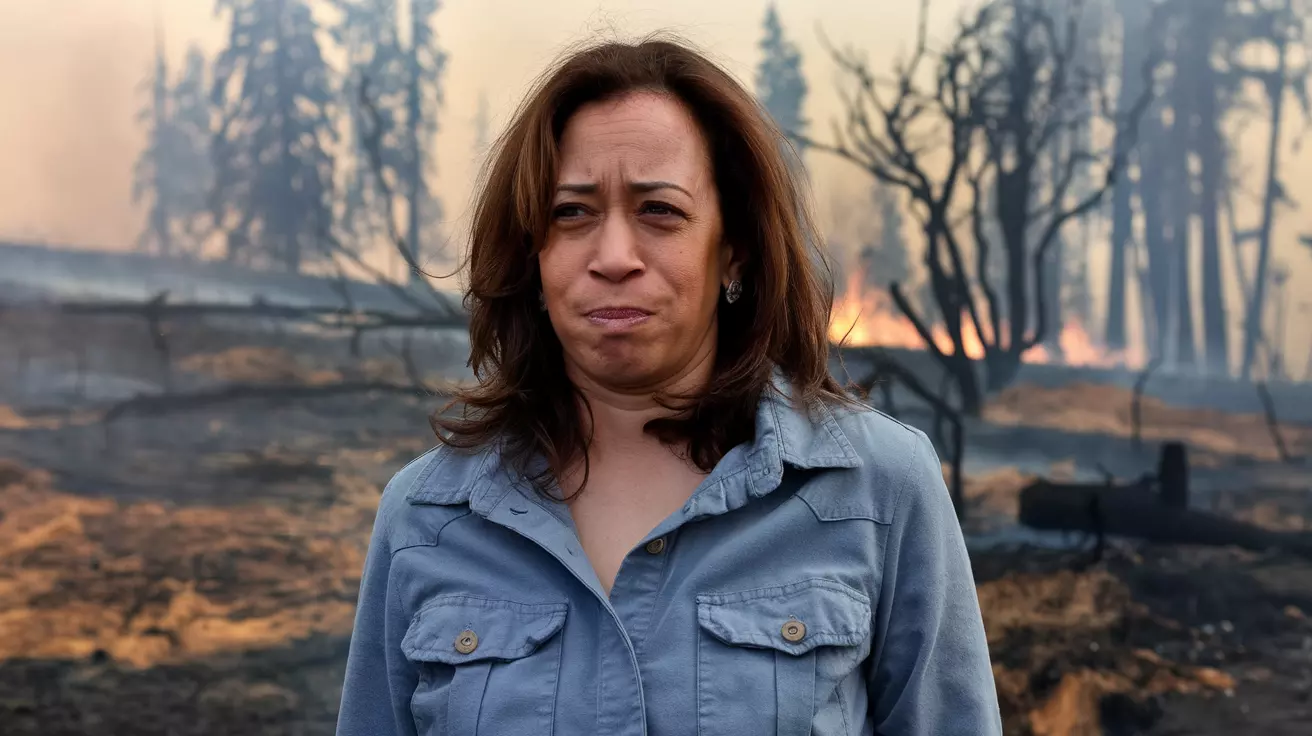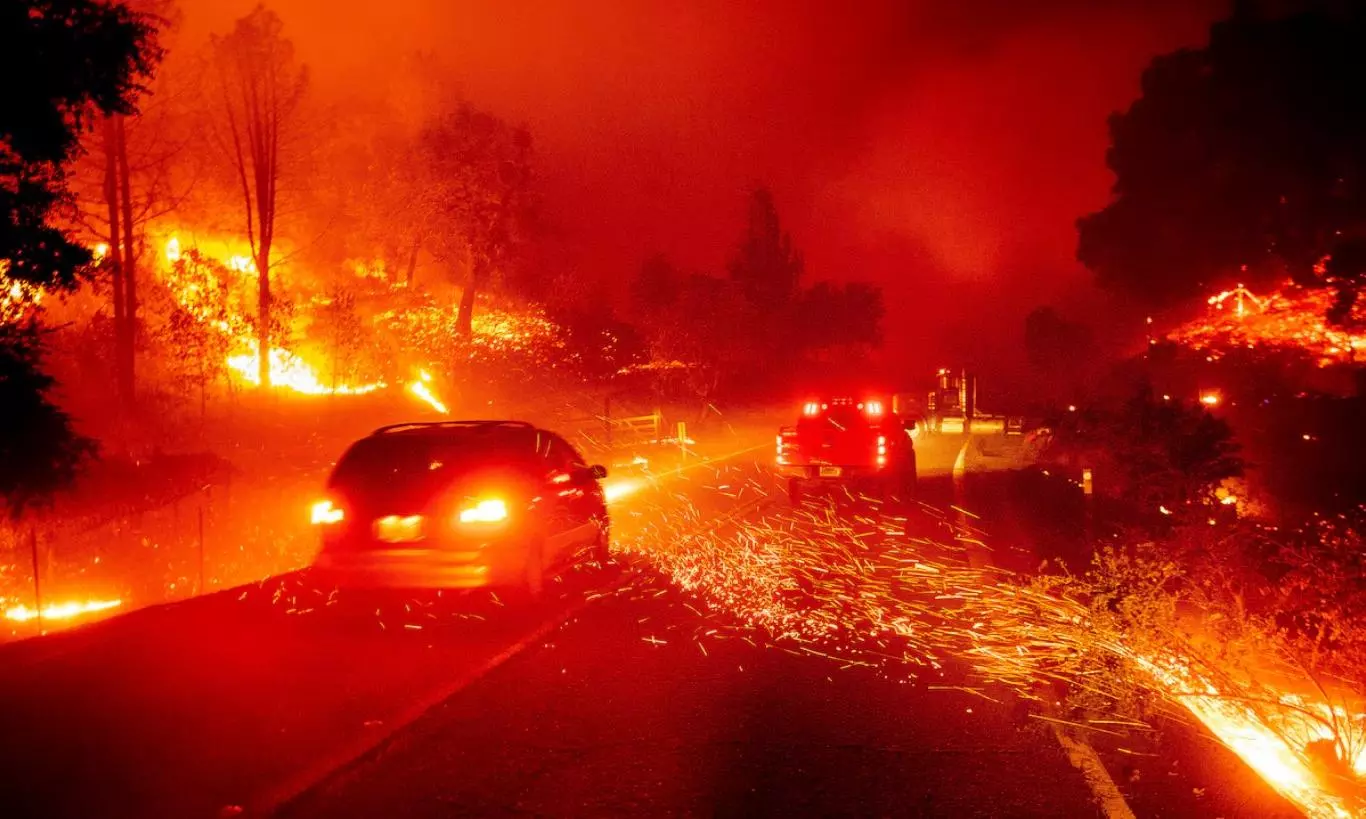
Displaced in Los Angeles: A Canadian's reflection on the wildfires and a heart pulled to Gaza
text_fieldsAs I looked out of the airplane window while descending into Los Angeles, I could hardly believe what I saw. Instead of the usual serene landscape of clear skies and the Pacific coastline, thick plumes of smoke stretched ominously across the horizon. Below, flames consumed entire hillsides, including the mountains surrounding Pacific Palisades, the neighborhood I call home when I am in the United States.
When I first moved to Pacific Palisades, famously immortalized in Surfin’ U.S.A. by The Beach Boys, I thought I had found paradise. Sylvia Phelps, a linguist and former resident, once described it as a place where “the ocean meets the mountains, and the mountains meet the sky.” Today, that paradise is a landscape of ash and despair. By the grace of God, my condo complex is still standing, but it remains within the evacuation zone. Like thousands of others displaced by the wildfires, I have no idea when I will be able to return—or what condition I will find my home in.
Driving through the city, the devastation becomes clearer with each passing mile. Streets are lined with abandoned cars, left behind by panicked residents fleeing for their lives. Over 153,000 people are under evacuation orders across Los Angeles County, and more than 10,000 buildings have been destroyed. Many victims have lost not just homes but entire communities, and while some will be able to rebuild, countless others, especially those without insurance, face an uncertain future.
My heart aches particularly for those who lack the resources to recover, but this experience also reminds me of another tragedy. As I reflect on the plight of “Palisadian refugees” displaced across Los Angeles, I cannot help but think of Palestinian refugees in Gaza. The comparison is, of course, limited; our situation pales in comparison to the suffering endured by those fleeing a Genocide and targeted violence. Yet, the fleeting chaos of evacuation—the fear, uncertainty, and loss—offers a faint glimpse of the constant reality faced by millions in Gaza, where families flee only to be met with more destruction, and where even displacement does not ensure survival.
The fires that tore through Los Angeles County are among the worst in California’s history, a grim milestone in a state increasingly familiar with wildfire disasters. Driven by Santa Ana winds exceeding 100 km/h and fueled by a parched, drought-stricken landscape, the flames spread with terrifying speed. What began as a small fire in Pacific Palisades quickly grew to over 40,000 acres and possibly up to 10,000 structures in just a few days. Four other fires—Eaton, Hurst, Lidia, and Kenneth—raged simultaneously, together consuming nearly 60,000 acres and threatening tens of thousands of lives.
Wealth and celebrity offered no refuge. Iconic figures like Billy Crystal, Mandy Moore, and Mel Gibson shared harrowing stories of loss, their homes reduced to ashes. But as Jamie Lee Curtis poignantly stated, “So many others have lost everything… help where you can.” In moments like these, fame and fortune become meaningless, as communities rely on acts of collective kindness and resilience to endure.
First responders, despite being exhausted and ash-covered, worked tirelessly against overwhelming odds. Local restaurants offered free or discounted meals to displaced families. Even strangers stepped up to assist, reminding us of the humanity that can shine through in the darkest times. When I rented a car to leave the evacuation zone, the agent at Budget, upon hearing my story, insisted on giving me the lowest possible rate—defying my fears of exploitation during a crisis.
The fires also revealed deep systemic challenges. Water pressure failures in elevated parts of Pacific Palisades hampered firefighting efforts, while years of urban sprawl into fire-prone areas amplified the risks. Governor Gavin Newsom has called wildfires in California a "perennial issue," and climate scientists point to the role of global warming in intensifying the severity of such disasters.
As an Indian-born Canadian, I thought I understood the harshness of winters in the North, but nothing prepared me for the terror of a Californian winter wildfire. This ordeal has reminded me that no corner of the world—no matter how idyllic—is immune to the consequences of climate change and human neglect.
By the grace of God, Pacific Palisades will rise again. But the scars of this disaster, both physical and emotional, will remain for years to come. For now, the mountains stand charred, the ocean reflects an eerie orange glow, and paradise feels heartbreakingly distant.
Faisal Kutty is a Toronto-based lawyer and regular contributor to The Toronto Star. His articles also appear in Newsweek, Aljazeera, Zeteo, and Middle East Eye. You can follow him on X @faisalkutty)







